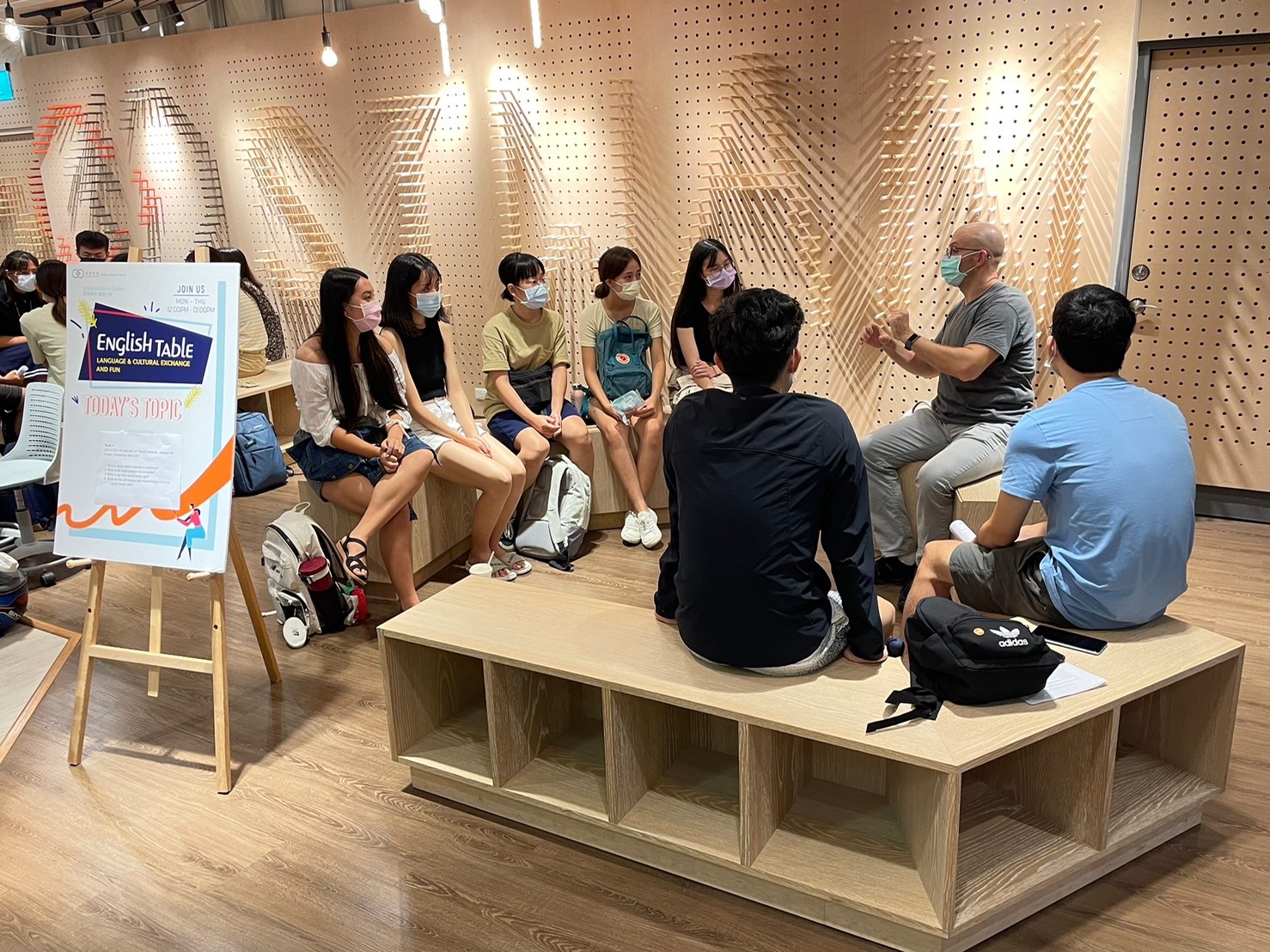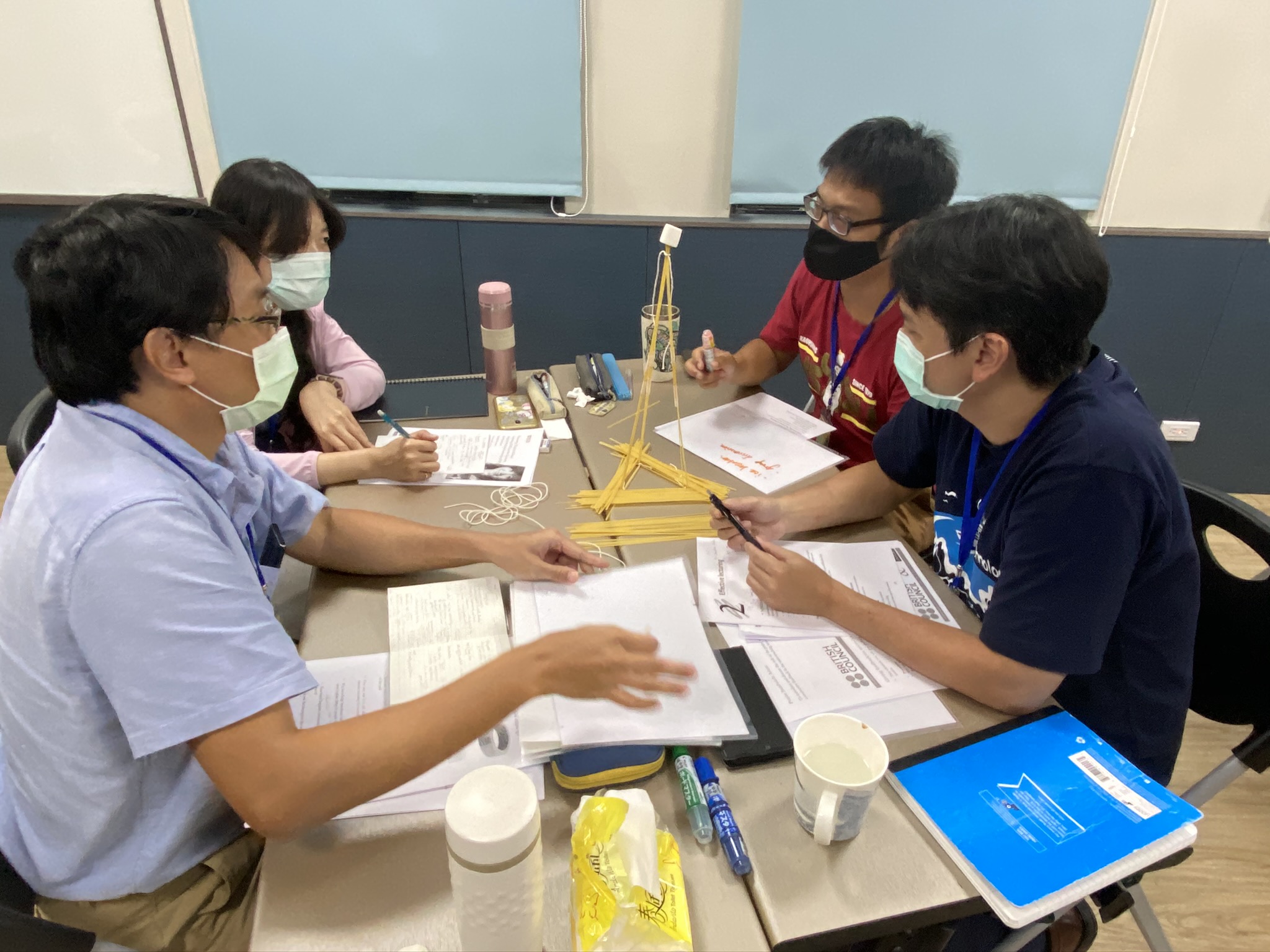Abstract
NSYSU BEST Program Implementation Synopsis
In response to the increasing demand for global talent, National Sun Yat-sen University (NSYSU) organized the Level-1 and Level-2 Administrative Director Consensus Camp in 2019 where the goal of being listed in the Top 200 of the Academic Ranking of World Universities by 2030 was established. With the aim of becoming a leading university in the world, NSYSU implemented an internationalization policy, targeting a 15% increase in the number of international faculty members by 2025, and over 20% by 2030. Additionally, the aim is to have 20% of the student population be international students. NSYSU also established the English as a Medium Instruction (EMI) Teaching Enhancement Program to support the bilingual policy for 2030. This program encourages and supports departments in developing EMI courses and provides a support system for EMI faculty members, thus gradually and systematically helping the various departments establish EMI programs and courses. Our goal is to have each department offer EMI programs at the undergraduate level and all graduate courses to be taught in English within the next decade. We hope these can enhance students' international mobility. This "bilingual university" strategy is implemented through both top-down leadership and bottom-up communication to achieve a school-wide consensus. The program implementation covers well-rounded aspects, including organization, teachers, curriculum, students, quality assurance, and the campus.
(1)Administrative Organization Adjustment
To promote the bilingual education program, we have established the Office of BEST Program. The Office is subordinate to the President’s Office, with the Senior Vice President as Superintendent and the Vice President for Academic Affairs as Chief Executive of Officer. A “Bilingual University Advisory Board” was established as well. In August 2021, Si Wan College established the Center for EMI Teaching Excellence, responsible for student English proficiency enhancement programs. NSYSU has moved towards the goal of an international bilingual university by reforming the organizational structure and linking each unit’s resources vertically and horizontally.
(2)Promotion of EMI Teaching Enhancement Program
In 2021, NSYSU launched a ten-year English Teaching Enhancement Program, which incorporates two main policies that focus on the establishment of EMI degree programs as well as enhancement of the quality of English-taught courses. The University established a comprehensive mechanism for English talent development in various academic fields through various supports, including providing departments with funds to recruit faculty members with international teaching experiences, offering subsidies to establish EMI programs, and allocating budget to support English-taught courses.
NSYSU has established 16 EMI degree programs, including 7 undergraduate, 6 master's, and 3 doctoral programs. In the 2021/2022 academic year, three undergraduate EMI programs, including the Departments of Electrical Engineering, Mechanical and Electro-Mechanical Engineering, and Chemistry, started recruiting students with a quota of 70. In the following academic year, 2022/2023, the Departments of Physics, Applied Mathematics, Marine Biotechnology and Resources, and the College of Management's International Business Bachelor Program (IBBA) joined with a quota of 205. In the 2023/2024 academic year, four more departments will establish EMI programs, including the Departments of Biological Sciences, Photonics, Materials and Optoelectronic Science, and Computer Science and Engineering, with an estimated 300 places available for enrollment. With these additions, 11 departments in total will offer EMI programs, representing 50% of the University's undergraduate programs.
The number of English-taught courses at NSYSU has seen a significant increase, rising from 488 courses (12% of the total courses offered) in the 2020/2021 academic year to 665 courses (16.48% of the total courses offered) in the 2021/2022 academic year. This growth has resulted in a higher proportion of local sophomore students taking at least 20% of their courses as EMI courses, reaching 19.3%. The proportion of first-year graduate students taking at least 20% of their courses as EMI courses has also reached 37.2%. Both have reached the expected targets.
(3) Enhancement of Faculty EMI Professional Skills
NSYSU has developed a comprehensive EMI Professional Development Program (PD Program), which is divided into Entry, Junior, and Senior levels. This well-established system helps teachers enhance their teaching capacity gradually and even become seed instructors who help peers, to reach the goal of sustainable development. The PD Program consists of EMI seminars or workshops, online EMI training courses, EMI teacher community, and EMI classroom observation. It is worth mentioning that we also elaborately designed a classroom observation mechanism, starting from 15-minute microteaching to longer (about 50 minute) classroom observation, and eventually becoming peer mentors who observe peers’ classes and provide feedback. This mechanism helps our teachers gradually being acquainted with classroom observation and then benefit from this mechanism. An EMI TA training system is implemented as well to provide teachers with resources to enhance EMI teaching. To increase faculty members’ sense of honor and participation, teachers who complete the requirements if the PD Program will be issued certificates and awarded with bonus.
It is worth to mention that based on the PD Program, the University has also cooperated with international organizations, including American Institute in Taiwan (AIT), Fulbright Taiwan, British Council (BC), and Open Society University Network (OSUN), to expand its training capacity. Currently, 14 NSYSU teachers received the certificate of completion for the OPEN (Global) Program, and 45 teachers completed the EMI online course (Certificate in EMI Skills) offered by Cambridge Assessment English. In addition, we have cooperated with AIT in implementing English Language Specialist Program in three projects, including (i) online EMI workshops, (ii) microteaching practice and (iii) micro-teaching and peer mentoring joint project. From May to June 2023, the University will execute the Fulbright Specialist Program sponsored by AIT by inviting an international EMI expert to conduct in-depth reviews and exchanges in regional universities regarding their bilingual implementation. Moreover, NSYSU is the only member school in Asian of OSUN. We have actively negotiated for access to the OSUN EMI module course developed by Arizona State University and incorporate the module course into our EMI PD Program.
The PD Program attracts not only newly recruited or junior teachers but also senior faculty members (i.e., 20% professors, 23% associate professors, and 57% assistant professors). As of now, 631 teachers have participated in the PD Program, and 17 teachers have received 31 certifications. These teachers also offer EMI courses with excellent quality. In the 2021/20202 academic year, a total of 259 NSYSU faculty members offered EMI courses, amounting to 45.7% of the total.
(4)Enhancement of Student English Proficiency
Starting from the 2021/2022 academic year, the University has made significant reforms to the general education English courses of the undergraduate program. We incorporate the CEFR standard into freshman English, including textbook selection, course objectives, curriculum design, and learning outcome assessment, to enhance students’ listening, speaking, reading, and writing skills. 10 ESP/EAP courses have been offered in the 2021/2022 academic year, with a total of 389 students taking the courses. From the 2022/2023 academic year onward, the University has promoted the integration of general education English courses of the undergraduate program with EAP/ESP courses. We require students to complete one graded English course and one EAP/ESP course to help build a foundation of domain English skills and to facilitate smooth transition to advanced domain EMI courses in the future. NSYSU also administers an on-campus TOEIC test for freshmen to monitor and track students’ English learning outcomes. In the 2021/2022 academic year, 27.75% of freshmen students reached CEFR B2 or higher.
The University also provides a variety of extracurricular English activities to strengthen students’ English communicative skills. For example, the Si Wan College holds English Table activities from Mondays to Thursdays at noon. In the English Club activity at the L-Building dormitory, students can chat with international volunteers on Fridays at noon. Besides, NSYSU also organizes English speech and writing contests to motivate students to improve their English speaking and writing skills. In the 2021/2022 academic year, students’ participation amounted to 6,870 times. Through these modified curriculum design, diverse student learning activities, and systematic English ability assessment measures, students will make systematic progress in their learning.
To give students more opportunities to connect with the international community and enhance their global mobility, NSYSU also provides multiple international exchange channels, including exchange programs, dual degrees, short-term studies, international volunteer programs, etc.. The University currently has 295 sister schools in 45 countries around the world. Of these, 219 have signed student exchange agreements, and 28 have signed 39 dual-degree contracts, with a substantial exchange ratio of over 80%.
(5) Quality Assurance Mechanism for EMI Courses
To ensure learning effectiveness in EMI courses, NSYSU conducted a detailed analysis of the implementation of EMI courses in the 2021/2022 academic year. The results show that the teaching evaluation survey and student learning outcome self-assessment of EMI courses were both better than those of Mandarin-taught courses. Furthermore, we compared the results of common compulsory courses collected from EMI programs and regular (Mandarin-taught) programs; there was no significant difference in student learning effectiveness between the two programs. The above analysis results indicate that the promotion of EMI courses did not reduce the quality of teaching, but rather, some EMI course teaching outcomes are even better than those of Mandarin-taught courses. We also find that the freshmen of the EMI programs in the 2021/2022 academic year achieved no fewer admission scores and had no worse academic performance than those in general programs. Students of EMI programs even showed more positivity and achieved better grades. They also expressed favorableness to such an EMI learning environment.
(6) Building a Bilingual Campus
The University aims to establish a bilingual campus through various measures, including bilingual web pages, bilingualization of important meetings, internationalization of administrative staff, and the establishment of English window in each unit. The University actively promotes the internationalization of university affairs to ensure smooth administrative operations and communication. In the part of internationalization of administrative staff, high-intermediate level English proficiency is required in recruiting new administrative personnel to meet the needs of an international campus. At the same time, NSYSU offers English training courses to help administrative personnel improve their English expression and communication skills. Besides, the University encourages its administrative staff to participate in English proficiency tests. As of now, 72 (17%) NSYSU administrative staff have reached high-intermediate or higher level of English proficiency.
(7) Regional Resource Sharing
NSYSU received funding from the Ministry of Education in 2021 to establish the first “Taiwan-US Education Initiative - Bilingual Education and Training Base," and the “Southern Regional Resource Center for Bilingual Education.” In the project of the higher education EMI Regional Resource Center, we assist seven universities in Kaohsiung, Pingtung, and Taitung to establish EMI teaching support systems, and share EMI teaching experiences and resources. To further strengthen resource sharing, the University develops five EMI teaching video modules and the associated materials each year starting from the 2021/2022 academic year. In particular, three stages of expert review are adopted to ensure quality of these resources. The produced modules and materials will be opened to NSYSU teachers and students as well as partner universities of the Southern Regional Resource Center for Bilingual Education. Regional teachers can make the best use of these modules and materials in their courses to improve teaching quality and alleviate teaching anxiety. In the meanwhile, instructors are also expected to be able to learn various pedagogy and strategies through observing the best practices elaborated in these modules and materials.

